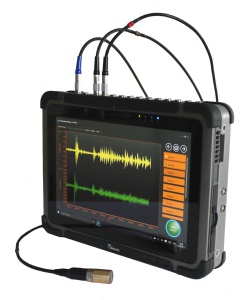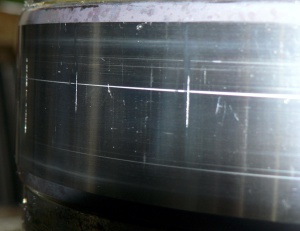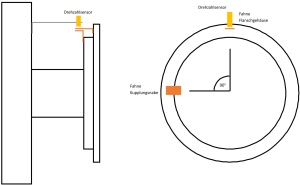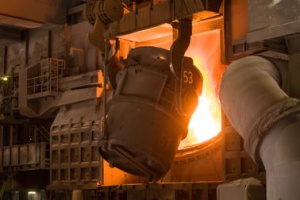-
Entry date 24.07.2025
Condition monitoring at HUSUM WIND 2025

-
Entry date 16.07.2025
Condition monitoring saves system operators a lot of money

-
Entry date 27.01.2025
Drum coupling monitoring - Automatic condition monitoring on cranes

-
Entry date 18.10.2024
Condition Monitoring and Artificial Intelligence

-
Entry date 15.12.2023
Condition monitoring at maintenance Dortmund on February 21st and 22nd, 2024

Drum couplings are capable of transmitting high torques, while angular and axial misalignment are adequately compensated from the outset by their design. They are suitable for use on cable drums of hoists on cranes because they easily avoid a statically over-determined arrangement of the drive elements. Nevertheless, these components are also subject to wear processes, which, although they vary in intensity depending on the practical application, cannot be completely avoided. To ensure system reliability and safety, monitoring of the wear condition is necessary. In individual cases, this can be done by visual inspection directly on the coupling. GfM offers a solution for this fully automated and remote monitoring.
A metal flag must be attached to each coupling side, tangentially offset from each other, preferably by approximately 90 degrees. A speed sensor holder must also be installed. The surfaces of the flags should be positioned so that they pass through the measuring range of the speed sensor. If the vanes cannot be positioned so that both can be detected with a single sensor, two speed sensors can be used.
The data is measured and analyzed in GfM's Peakanalyzer, a scalable online condition monitoring system originally developed for the diagnosis of complex mechanical drives. Barrel coupling monitoring is preconfigured in the associated Peakanalyzer Manager software. The ultimately measured and displayed value is the change in the tangential distance between the vane on the coupling hub and the vane on the flange housing, which is a measure of the mechanical wear of the barrel rollers and the gearing. This value can be output via various methods:
- 4-20 mA interface for outputting the wear value
- Digital switching contact for signaling an alarm
- Profibus or Profinet control for outputting the wear value and separate alarming
- Output of information via data interfaces (MQTT, WCF, OPC UA)
- Sending an email in the event of an alarm.
This information can then be used directly as a warning or alarm parameter.
Automated barrel coupling monitoring leads to improved availability of the monitored cranes. Maintenance measures can be better planned, and unplanned downtime can be avoided. Ultimately, however, better utilization of the wear reserve of the barrel couplings is also achieved, which directly contributes to cost savings and resource conservation.
-
2025/07/24
Archive - 2024
-
Modified date 2024/10/18
Condition Monitoring and Artificial Intelligence
Archive - 2023
-
Modified date 2023/12/15
Condition monitoring at maintenance Dortmund on February 21st and 22nd, 2024
-
Modified date 2023/08/22
Condition Monitoring at HUSUM WIND 2023
-
Modified date 2023/06/16
Is condition monitoring even worth it?
Archive - 2022
-
Modified date 2022/07/05
Analysis of the foundation movement on wind turbines





